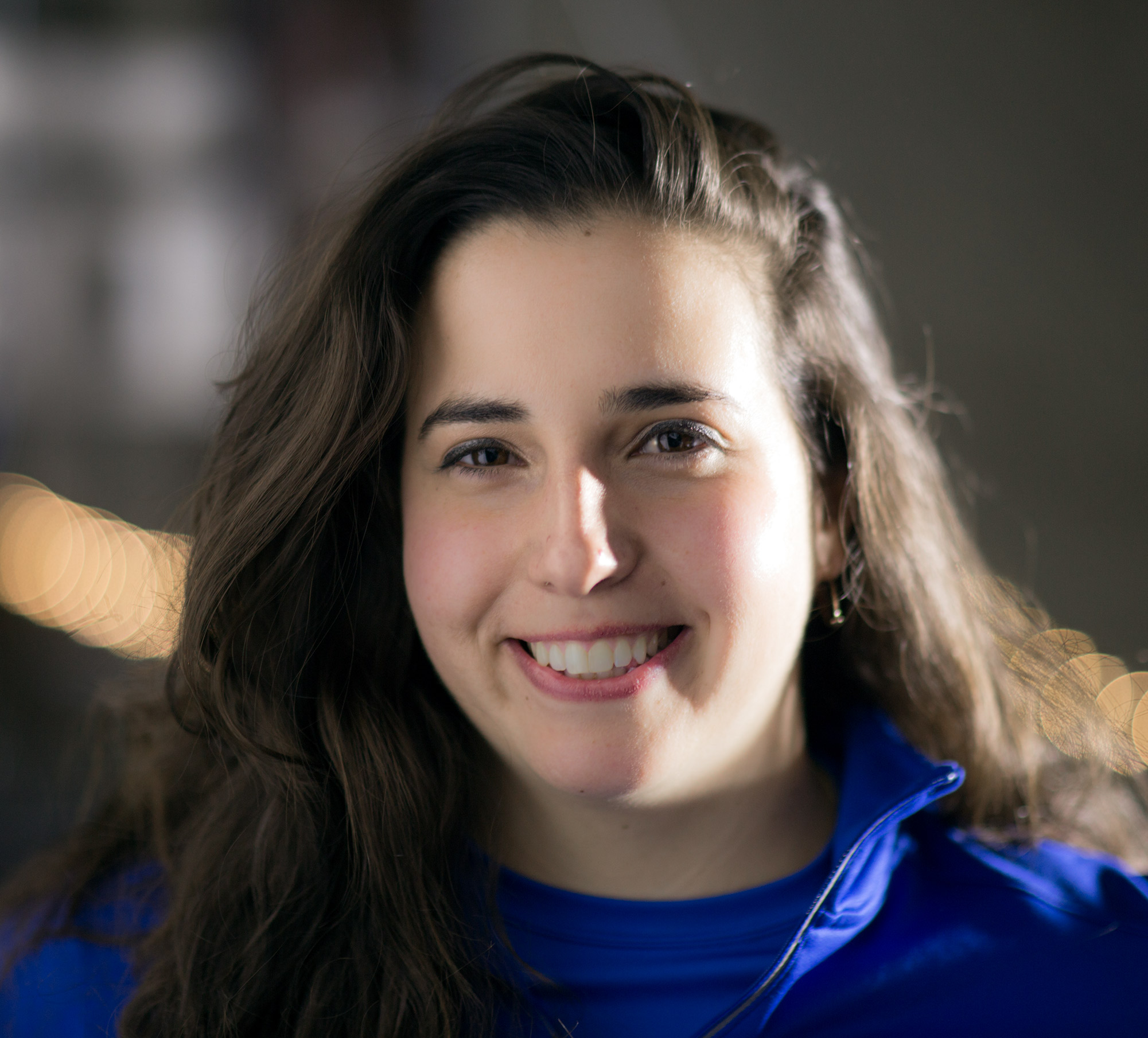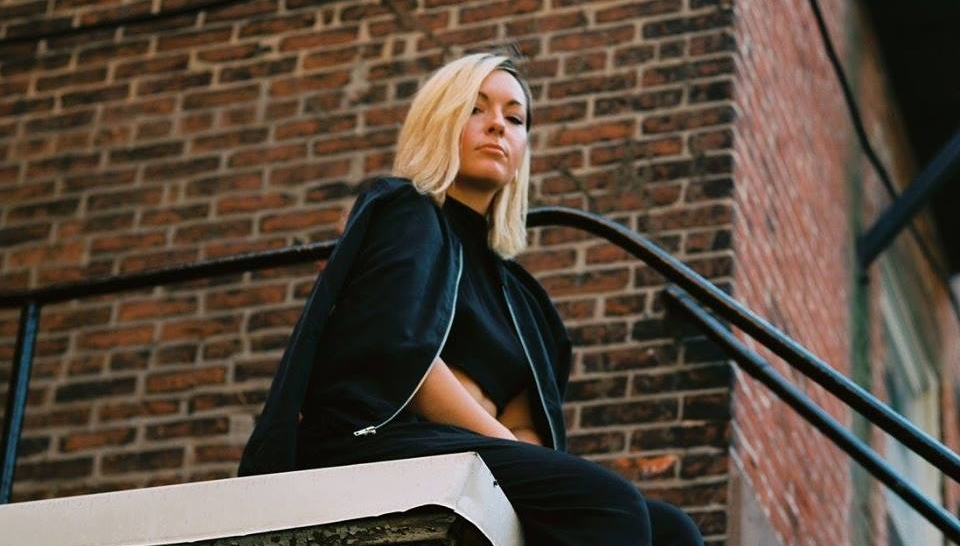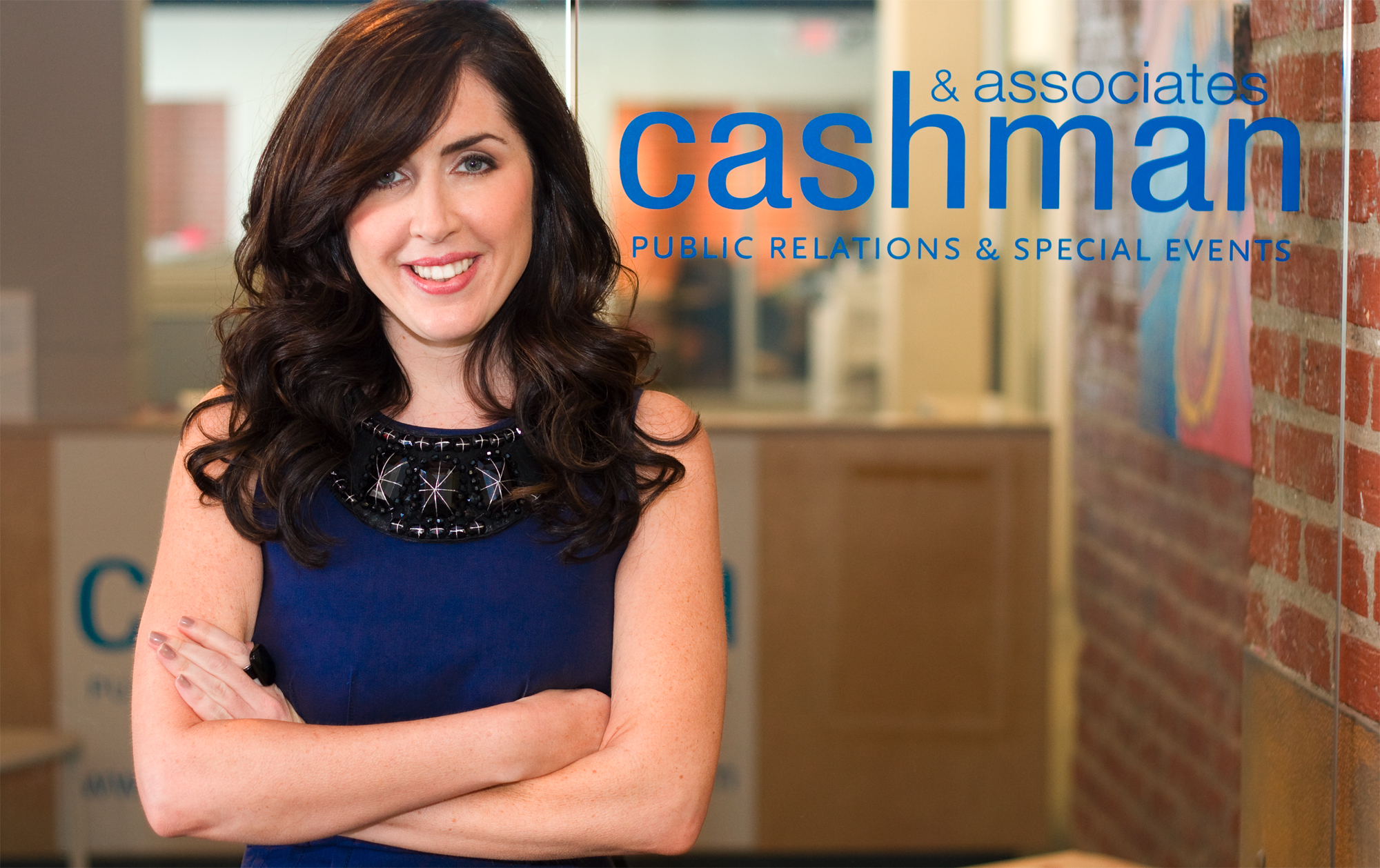Meet Tozuda CEO & Founder Jessie Garcia

Tozuda CEO and Founder Jessie Garcia
Jesse Garcia is the CEO and Founder of Tozuda, a technology company revolutionizing the way that athletes and institutions approach traumatic brain injuries. Tozuda’s mechanical sensors easily attach to a helmet and detect when a hit from any direction is potentially concussive. When impacted hard enough, the sensor releases a red dye, indicating that an athlete should be checked out by a doctor before returning to the game.
It’s not only being used by football players, but cyclists, equestrians, and even construction workers are clamoring to try Tozuda. In fact, Tozuda will ship 2,500 sensors this fall to customers all over the country. 700 of those units are from the successful Kickstarter campaign the company launched over the summer, raising over $30,000.
Jessie Garcia is the brains behind Tozuda. A curious kid, she grew up outside of Newark in Bloomfield, NJ. Her parents started a food marketing company called Hispanic Advertising and Promotions, and Jessie spent much of her adolescence learning the ropes of the family business and playing fastpitch softball and basketball.
It was at Lehigh University in Bethlehem where Jessie discovered rugby. She was midway through her studies when a rugby injury impacted her brain and the course of her studies and her career.
After graduating Lehigh University with a B.A. in global studies and dual minors in entrepreneurship and women’s studies, she wasn’t sure what she wanted to do next. Should she start applying for jobs or work in the family business?
She longed to solve problems, not just in the United States, but on a global scale. The only thing holding her back was that she hadn’t yet identified a specific problem to solve.
When Jessie heard about Lehigh University’s new interdisciplinary technical entrepreneurship program, she jumped at the opportunity to learn about product design and business, and walk away with a master's degree in engineering.
The program encouraged students to think about their own challenges, positing that if you have to deal with a problem personally, you may be the best person to solve it. That’s when Jessie remembered her head trauma.
Tell me about your rugby injury.
I was one of those front line people so I was always getting hit. I was going in for a try, which is essentially a touchdown in rugby. I was running and someone just hit me blindly, catching me off guard from the right. And I got up and played the rest of the game. I definitely went into contact multiple times after, and it was about three days later my coach emailed me and was wrote, “Jesse, I'm so sorry. You were absolutely concussed. I should've never left you in the game. I have to sit you out these next couple of days.”
I did everything wrong. I went out that night, I was using my computer, all the light stimulus, all the noise stimulus. For a solid six months I could barely read. It would take me 15 minutes to read one page because my eyes couldn't focus. I felt dizzy and unbalanced and really struggled. It was like my brain knew something was wrong and I couldn't understand why. I was so frustrated.
You were ahead of the curve when it came to realizing that concussion related complications like CTE (Chronic Traumatic Encephalopathy) or Second Impact Syndrome would be a huge issue.
I knew the problem wouldn't go away. You can't prevent a concussion because your brain moves independently. Maybe you could do something biomedically to thicken your spinal fluid, but there's really no way to prevent it. I knew that it was getting big in football, then other sports have followed. Now we are seeing concussion awareness happen within industry too. For example, we have a construction company in Philadelphia using our sensors right now. I had an equestrian team reach out to us on Kickstarter and I had a bobsled team out in the UK reach out.
Once activated, Tozuda sensors release a simple, non-toxic mix of liquid and dye, changing in color from clear to red.
I actually found out that the number one recreational sport [where head injuries are most common] is cycling. More concussions happen in cycling then in American football or soccer combined.
It's just grown, which is great for us because it just proves that where it started isn't the half of the market. There's so much more.
“Everyone deserves to play safely. Why should cost ever be a factor in this?”
What were some of the challenges that you faced during the research and development process?
So rugby is a non-helmeted sport. My first idea was actually a mouth guard. Location wise, it's great to detect impacts to the mandible, which is connected to your skull. People hate mouth guards. I loved it. I'm like, “this is a great solution.” I started talking to players. They said, “I chew mine, I put tape on my teeth so I don't have to wear one.” Parents were like, “I just spent $10,000 on braces. There's no way he's not wearing his dentist approved mouth guard.” So my initial thought was completely wrong.
The initial concept...
"So rugby is a non-helmeted sport. My first idea was actually a mouth guard. Location wise, it's great to detect impacts to the mandible, which is connected to your skull."
Concussions can happen with linear or rotational forces. But when I first started we didn't know about rotational, that wasn't even a thing.
What does “Tozuda” mean?
Tozuda means hard-headed in Spanish. My grandma used to say, "You are so hard-headed," but as a term of endearment. As in, you’re determined. I've always been the kind of person it's like once I get stuck on something, I'm stuck there. I've definitely embraced that, you know, just to stay hard-headed enough to see this through wherever it goes.
Don't be hard-headed enough to not listen to people. But, just be determined enough to make it happen. And also don't be hard-headed and continue playing a game when you know you're injured.
Did your family support you starting your own business?
They're the ones that gave me that final push. They said “we support you in doing this, you know, you have opportunities that we don't have, go for it. There's no better time.” And just having that safety net, or understanding allowed me to do it.
Were there ever times when you doubted yourself?
Yeah I think that was one of the hardest things to get over. I used to think, who am I to be doing this?
Classic imposter syndrome. How did you overcome that?
I definitely feel that sometimes still, it’s not 100% gone. I think it was just more presenting the product, seeing responses to it, and that there's really value. There are electronic sensors out there but we're making mechanical sensors specifically for the affordability aspect. I would talk to coaches and ask why they don't use technology out there right now. “We would love to give this to our players, but there's no way we could spend $200 each player when they have 40 to 50 players on the team.”
It’s not that they don't want the additional safety, you just can't afford it. So then that became my biggest passion. Everyone deserves to play safely. Why should cost ever be a factor in this?
"If it's red, check your head."
The catchphrase was actually created by Jessie's father.
What is it like to operate in a male dominated industry?
I love going to trade shows with John [Tozuda’s business development manager] because [attendees] always go to him first. Always. And he's great about it. He always says, "Nope, she's the boss."
It makes me feel like angry in a sense because I've put all my money into this. I put my sweat and tears into this. This is going to be an issue always. It's never going to go away.
The funny thing is like, people just don't think I can talk sports. I love sports. That's what I like. Im my free time, I’m looking at ESPN or watching the World Cup.
I like to think that we've really taken every step, every conscious step towards making Tozuda as great as it can be. And then that gives me confidence. Hey, I know my stuff, I know this isn't going to fall off going into contact like it's not going to go off every single five minutes because that's football coaches first thought.
Sounds like you really can't be self-conscious.
No. Not at all. Someone told me, "Leave your cool baggage at the door."
For the longest time, I would think, oh this product is a reflection of me. But no, it's a product. Calm down, Jessie. But it's not going to get better if you don't put it out there. And that's what you should always be wanting to do: better your product.
And know your market. There was a lot of trial and error on that one.
A good piece of advice is talk to strangers. Not that I always do independent market research. But sometimes I go and just observe on my own. And approach people. It's kinda like dating. You know, you throw stuff out there, and sometimes you gotta run back.
“I’m strong, I’m powerful, I’m capable.”
How would you describe your leadership style? What qualities make a good leader?
One who listens. You know, I'm nothing without my team because they make all of this possible. I always want to have a pulse on like their inputs and ideas because they're working with the product in a different way. I don't like to rule things out. Something might take a really long time, but I don't like to rule out possibilities
Who are your mentors?
The biggest influence in science would have to be my AP bio teacher, Mrs. Hirce. She would say, “you're an empowered young woman. Who better than you to change the world?” She was just so amazing and she really gave me the confidence to go into science. My business role model is Sara Blakely, the inventor of Spanx. I'm obsessed with her just because she's the first self-made woman billionaire and never took outside funding, which I probably will. And she does such good with her money. She's one of those billionaires that donated half her wealth away.
I would also say my Abuelita Marusa (grandmother) is a big influence. She was just such a hard worker. She worked in a factory. She was a teller in a bank. She put in so much sweat, worked so damned hard. If I ever complain I think about Abuelita Marusa.
She's really resilient and I try to be resilient with the ups and downs of the business. I come from a very hard working family. It's a matter of when. Don't know when the when is. But it's a matter of when all this will pay off. Whether it's with this product or maybe it's the next version of this product. I don't know. I just have to keep moving forward.
She always says “Pa'lante,” which is keep going forward.
It sounds like she had a lot of grit.
Oh my gosh, yeah. She has a crazy story. She was abandoned when she was young. In Cuba, she had nothing. So, back during that time, in order to leave Cuba you had to have a sponsor to get you out. But, they didn't know anyone. So, my grandfather was part of this Lion's Club and they wrote letters to all the Lion's Club members, and found a family in Mexico that sponsored them. So, they moved to Mexico, lived in Mexico for two years. Crossed the border into the US. They did all of that just to get us here. So, now I'm like even more motivated.
My grandmother did this for my mom and her sister. My dad's side is also Cuban, and they left to do all this for him. What am I going to do with how they set me up?
You want to carry the torch.
It's always about improvement. Like, they've always wanted more for themselves, and wanted more for us. Now, nothing would give me greater pleasure than to take care of them.
What is it like to witness what's happening now with immigration?
Seeing what is happening today is just so disappointing. When my grandparents came across the border they found a police station and claimed political asylum. I think that officials did separate them for an interview. So, they interviewed my grandparents alone. But then they gave them movie tickets. It was just completely different back then. I wouldn't be in this country if it wasn't for illegal immigration.
Any advice for aspiring engineers?
I would say act now with the skills that you have. So, you know, you saw my beginning skill level was Model Magic. That got me so far. So, as long as you're doing something, you're going somewhere.
You'll always have ideas but it's different to take action on them. And I think that's the key for product development. Who cares if you can't sketch? Show me your sketch. Show me your doodle. Because that just gets the conversation going.
But that's really the biggest thing for product development that has benefited me is that I've always just tried, and tried, and tried, and tried.
Do you have a mantra?
I'm strong, I'm powerful, I'm capable. That's what I would tell myself when I was mountain climbing a couple of years ago. I'm strong, I'm powerful, I'm capable. And sometimes I do my Wonder Woman power pose.










